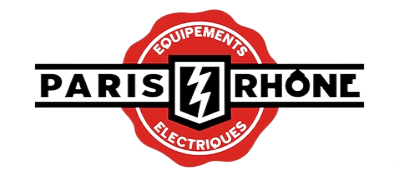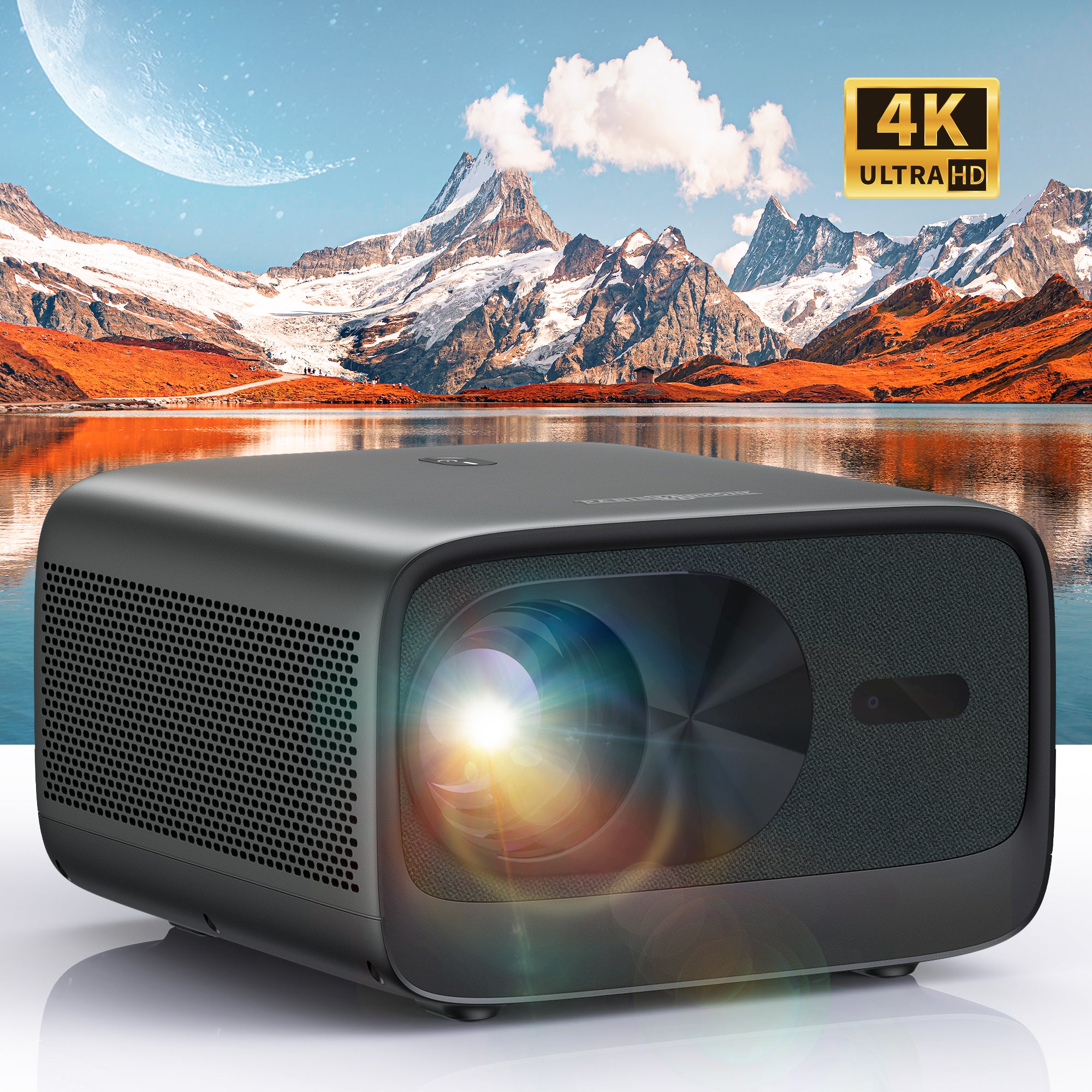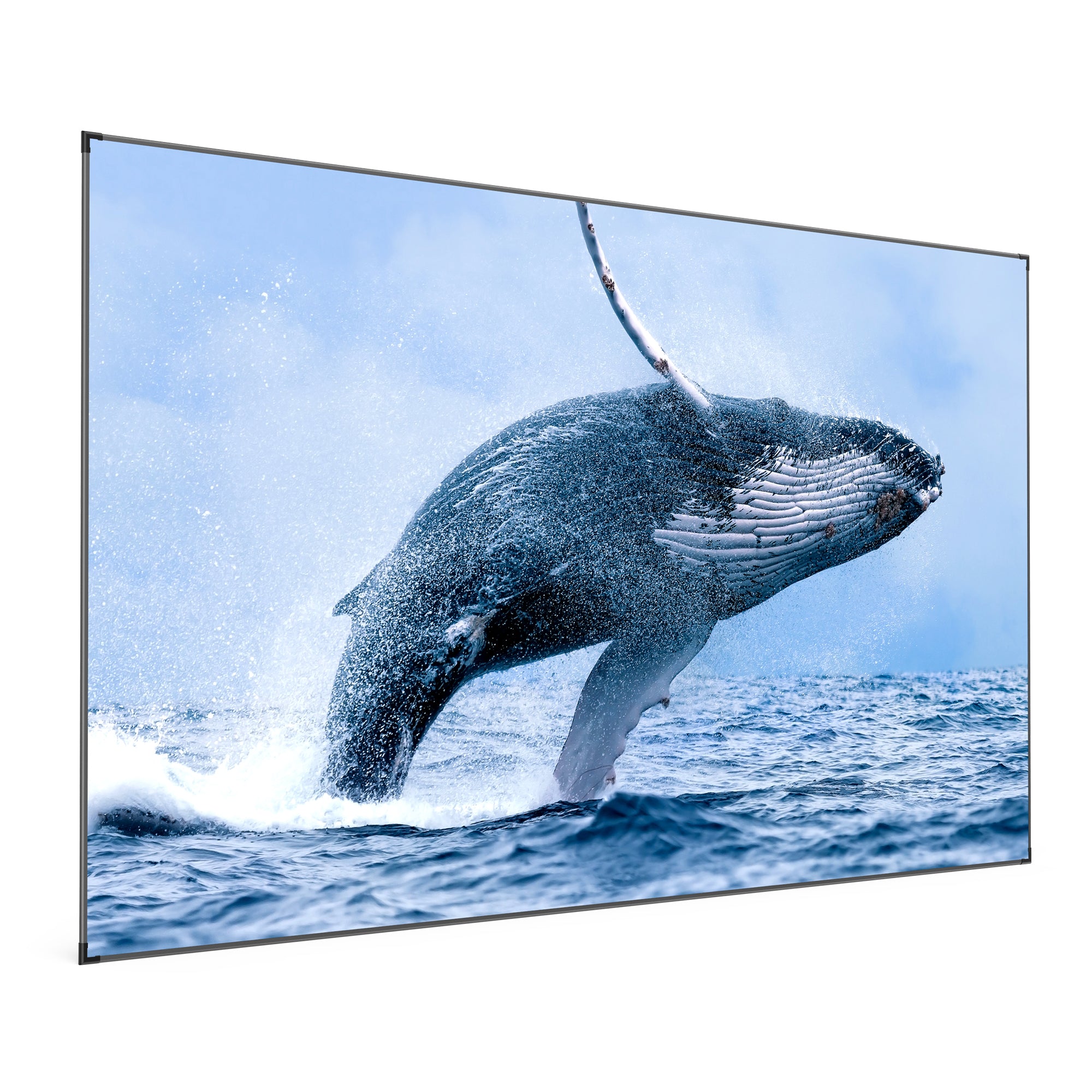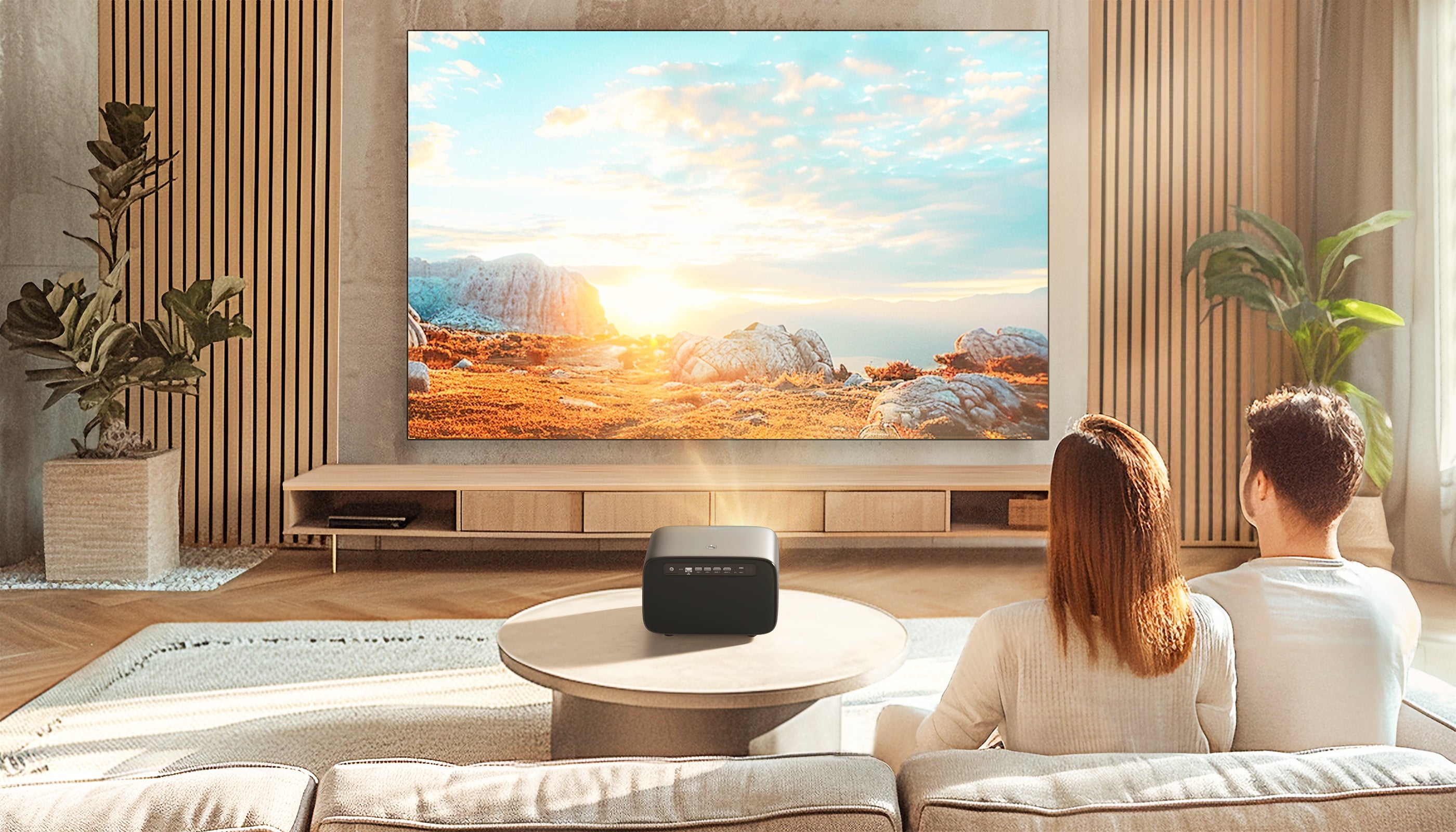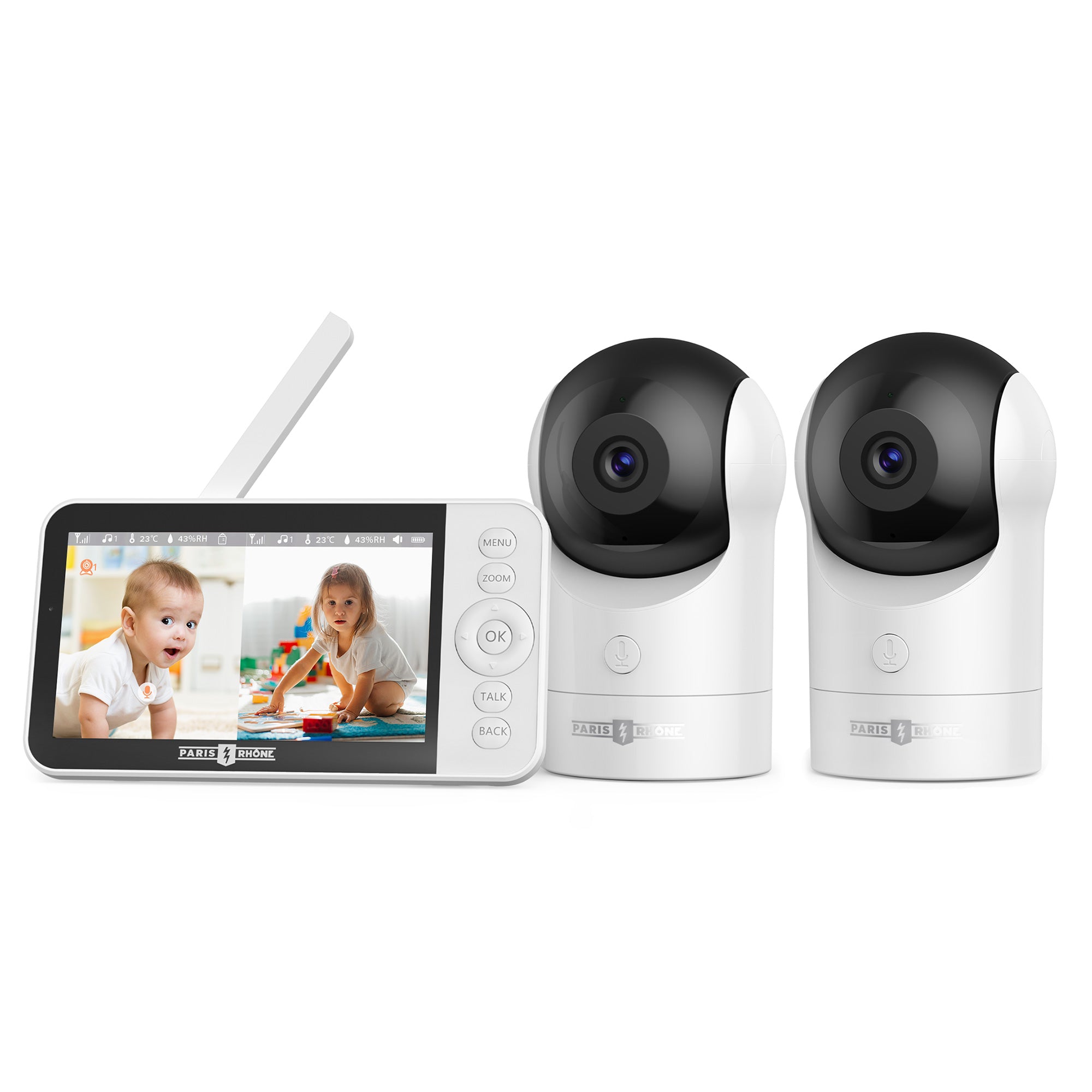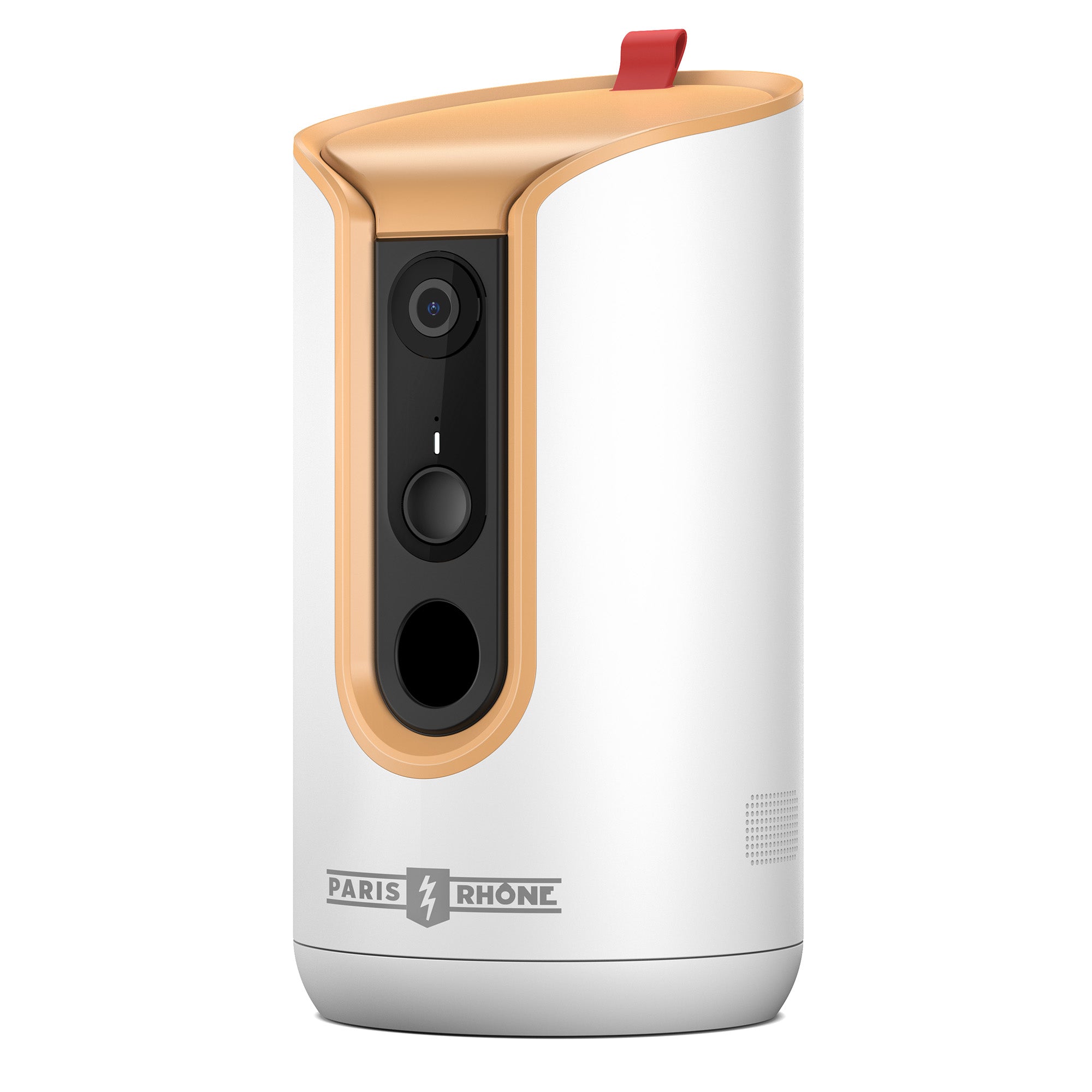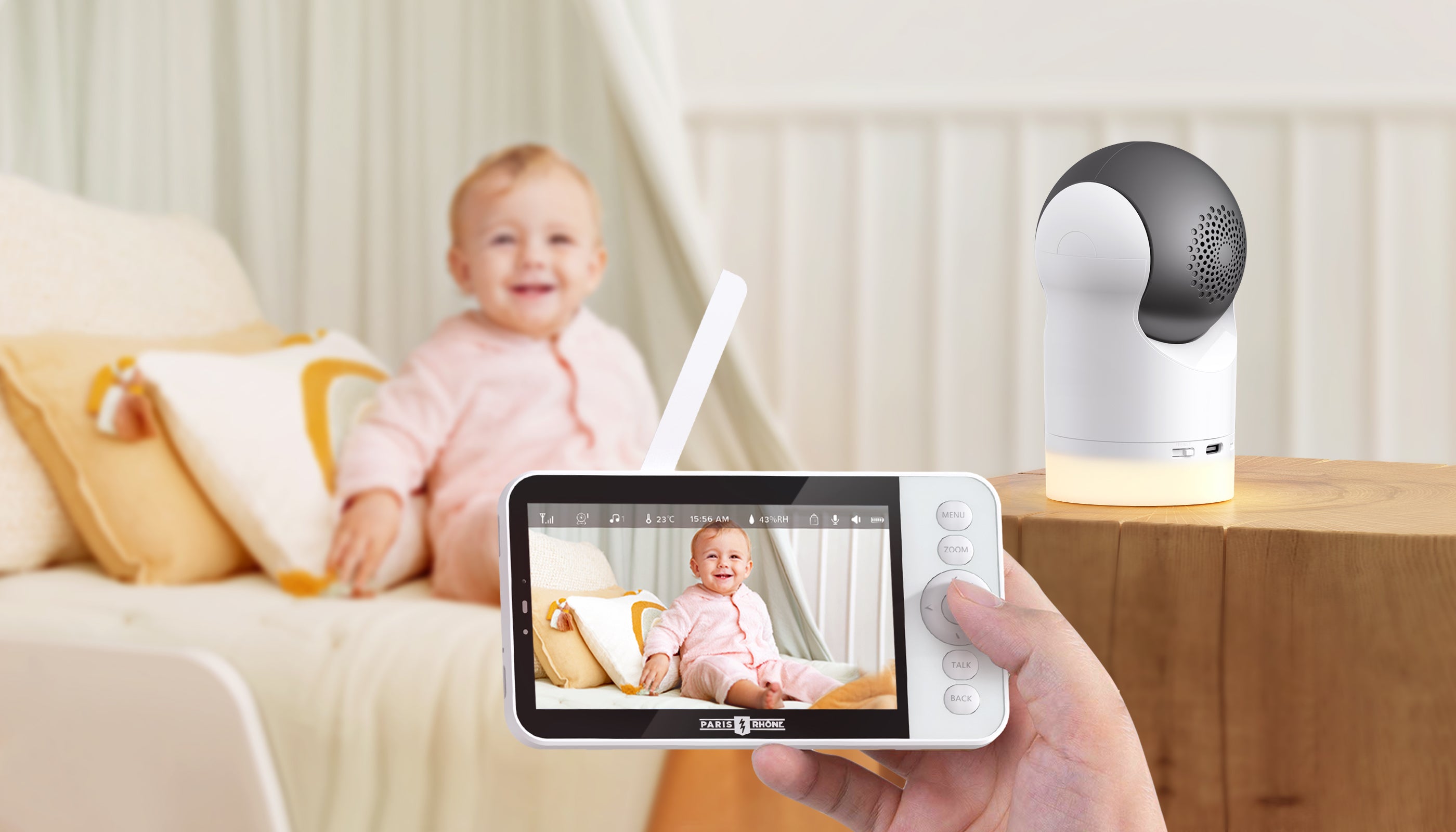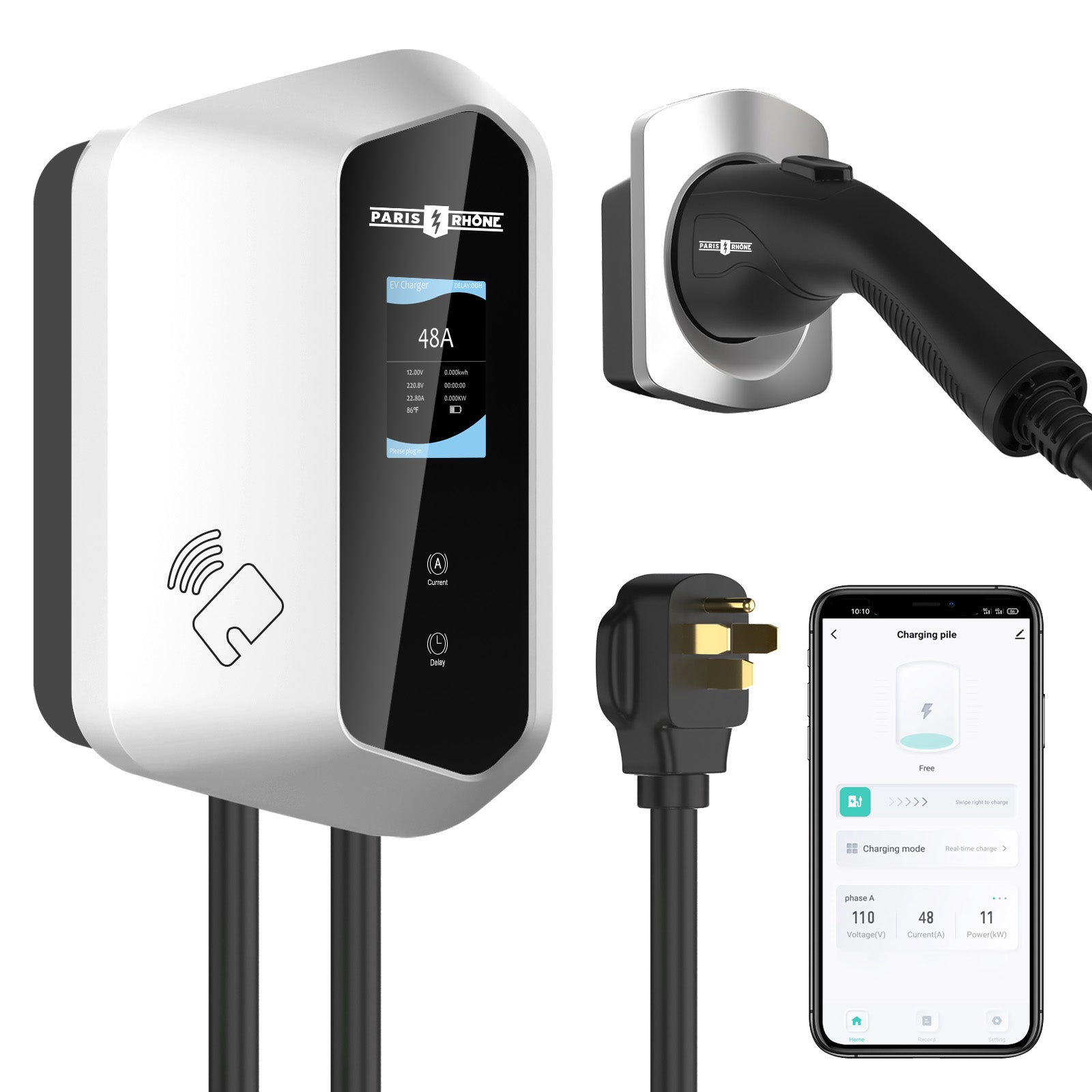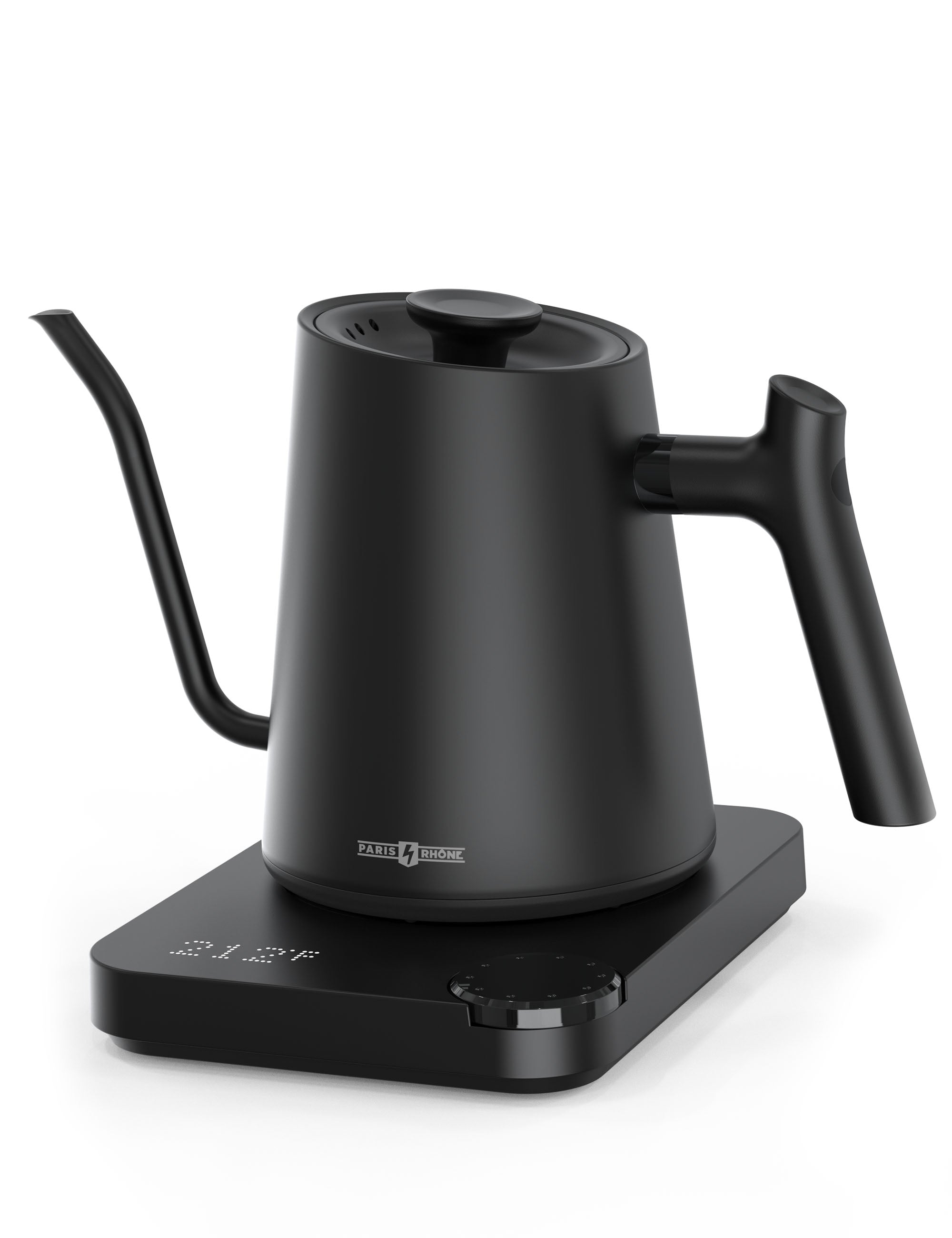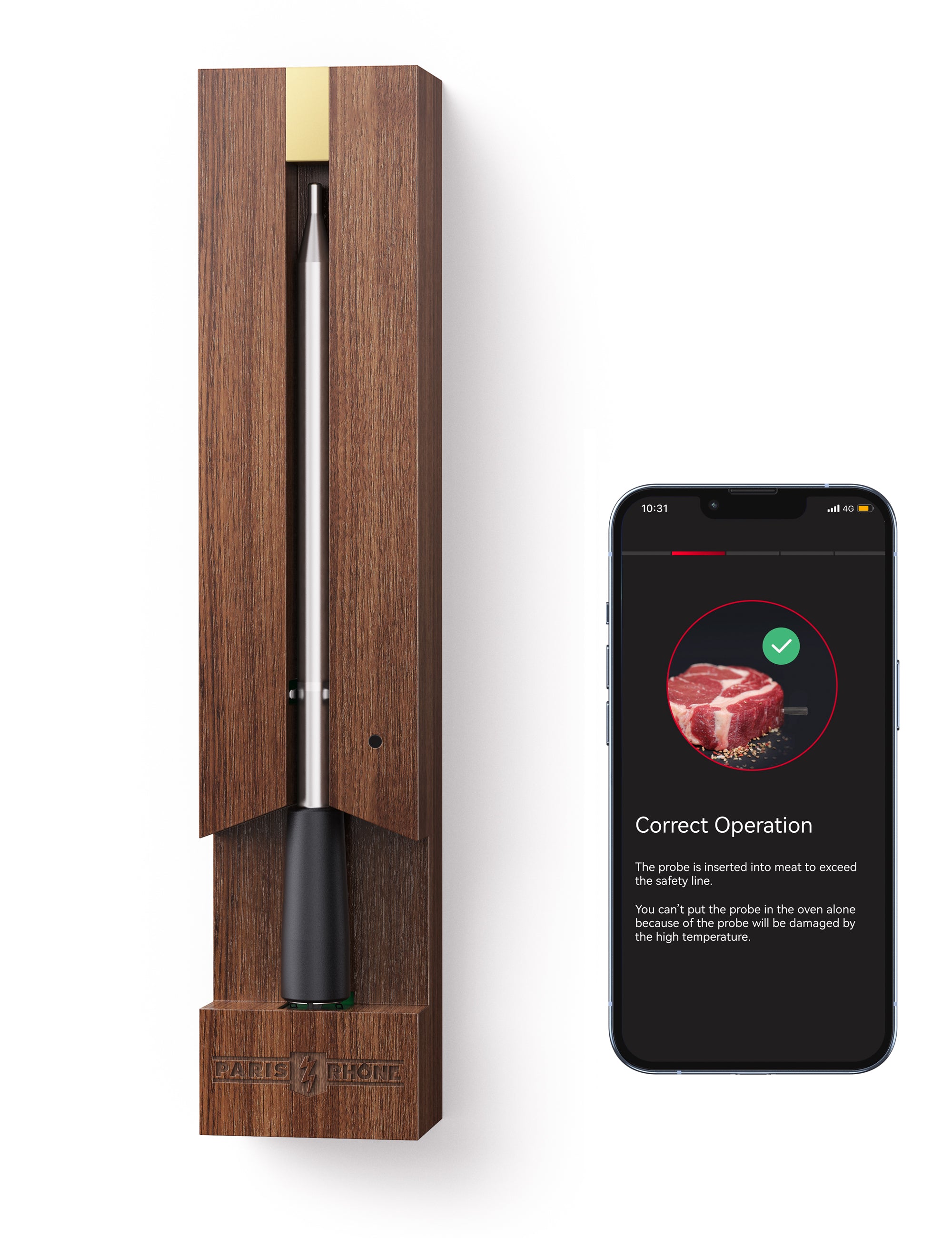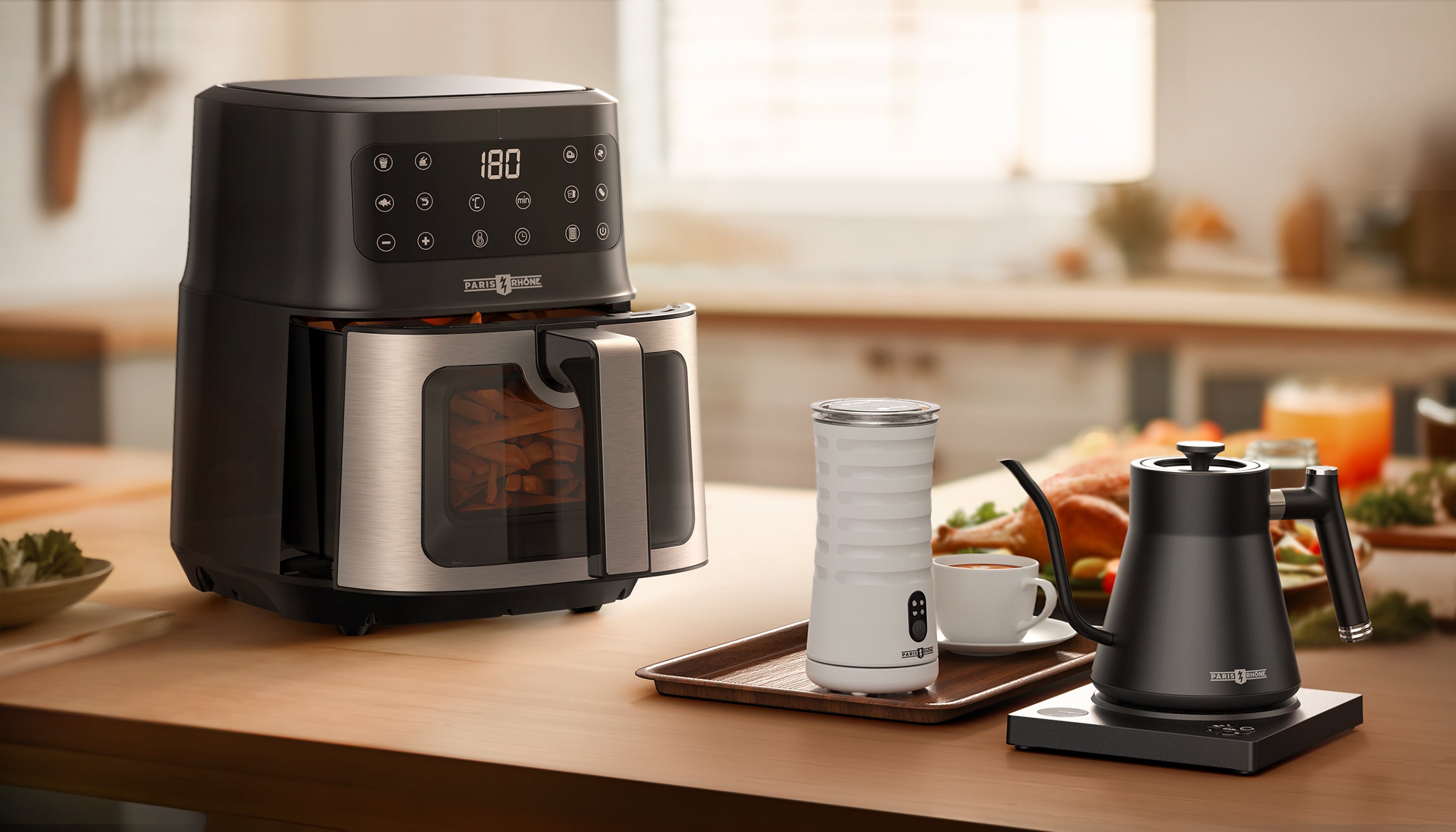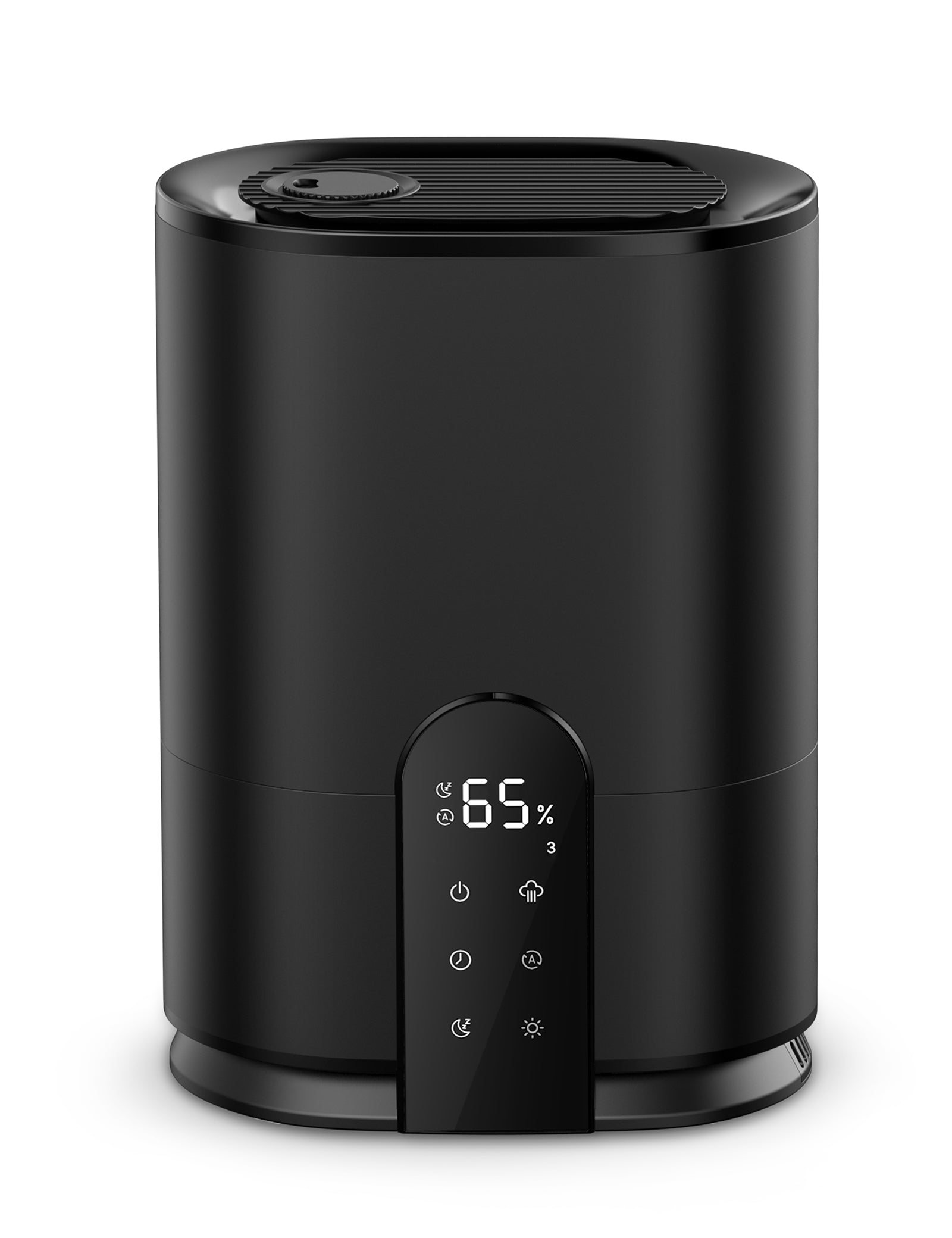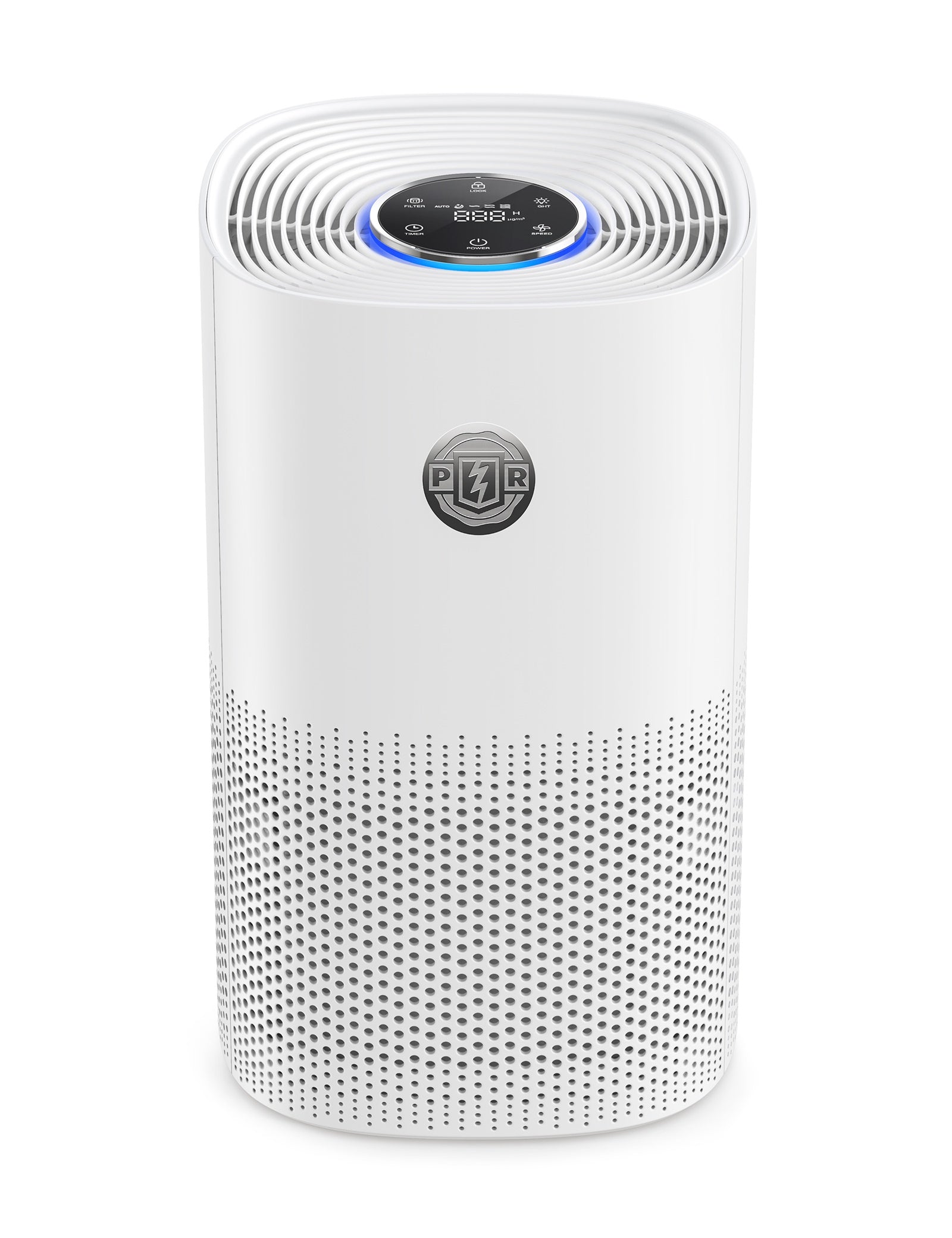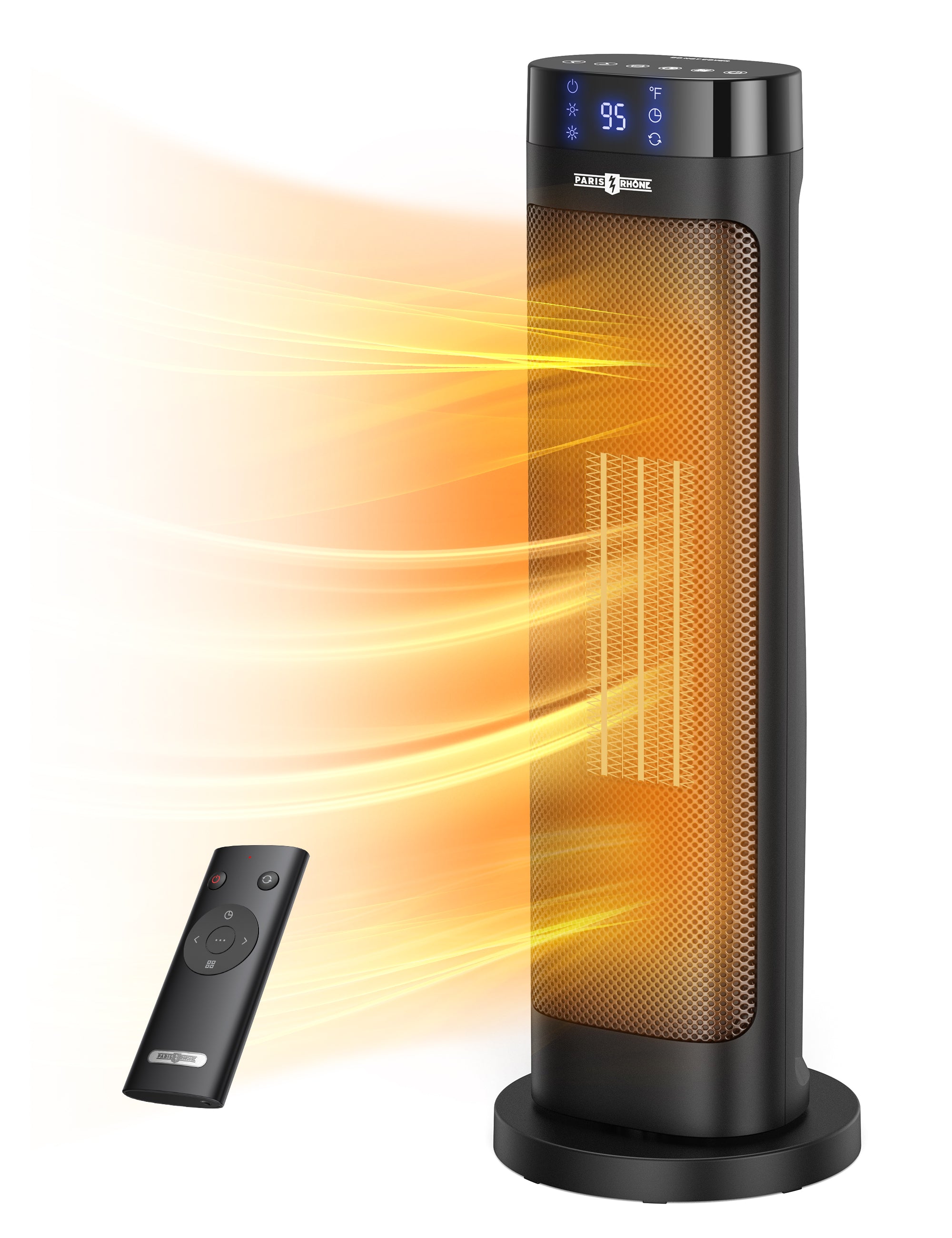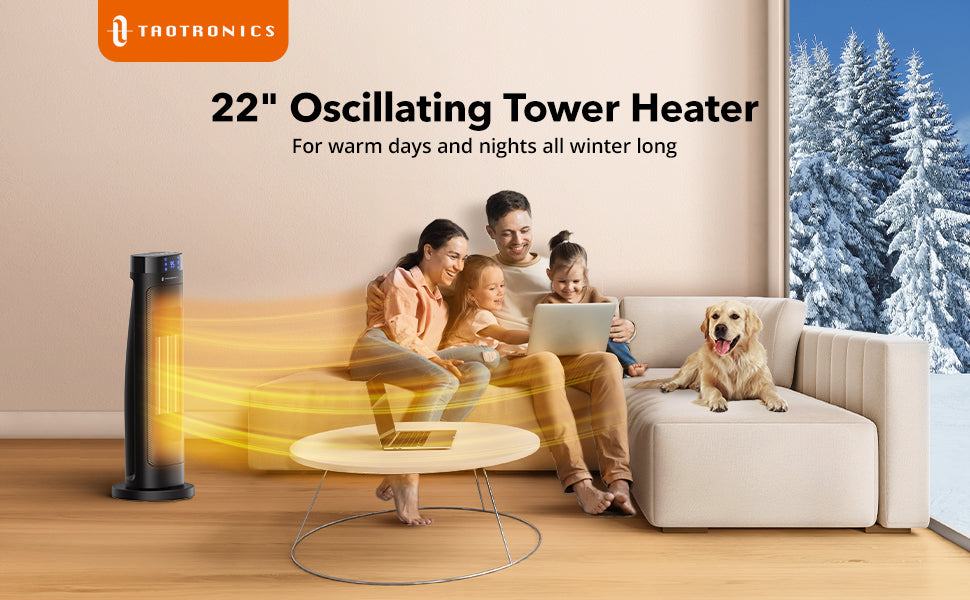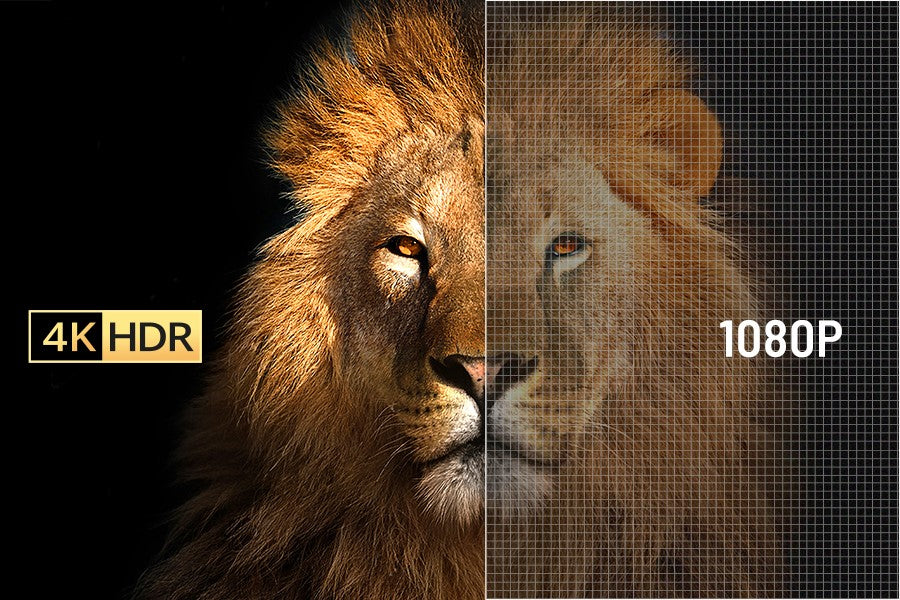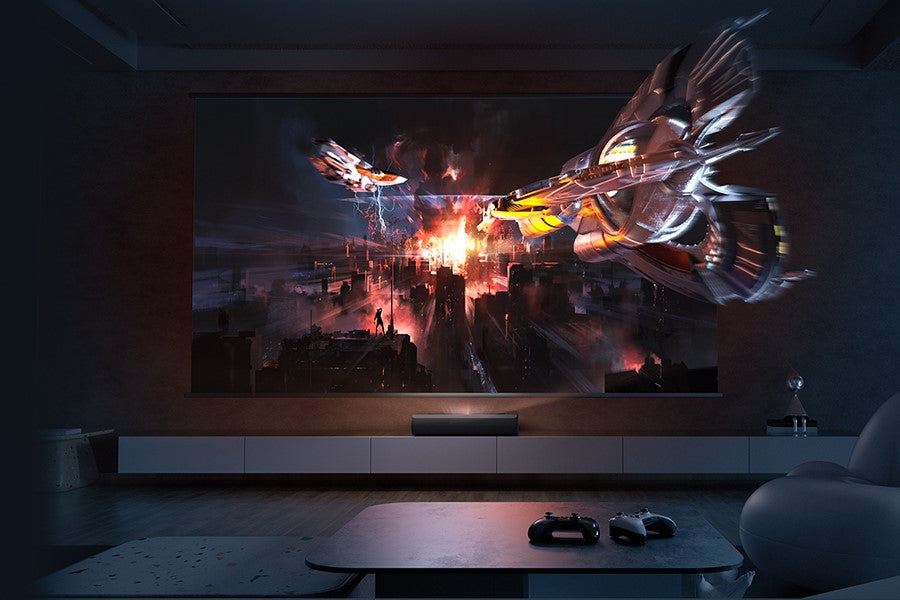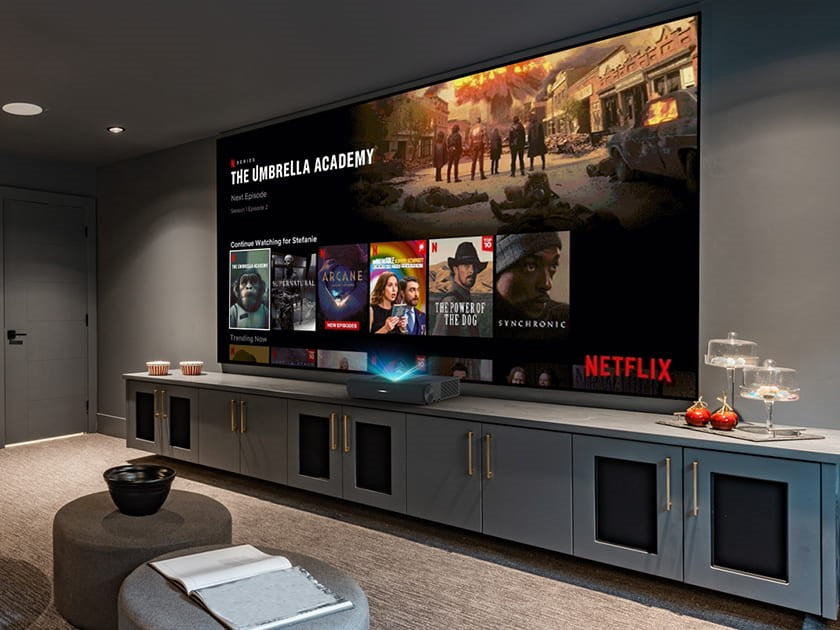Step into the luminous world of home theater technology, where 4K and 1080p projectors go head-to-head in a riveting showdown! Are you entranced by the allure of exquisitely detailed visuals or pragmatic about financial outlay? Perhaps you're a gaming enthusiast seeking an immersive experience or a cinephile yearning for a truly cinematic feel. This intricate tapestry of comparison delves deep into resolution, contrast, cost-effectiveness, color accuracy, and much more.
As we explore this terrain of technology, discover which projector emerges as the ultimate champion for your entertainment enclave - is it the dazzling brilliance of 4K or the reliable performance of 1080p? Read on to find out!
What is a 4K projector?
4K projectors utilize advanced imaging technology to deliver ultra-high definition visuals with 8.3 million pixels. This provides over four times the resolution of 1080p full HD projectors. The sheer amount of detail and clarity 4K models can project is stunning.
4K projectors achieve such high resolution using advanced components. State-of-the-art imaging chips like Texas Instrument's DLP chip contain over 8 million micromirrors to precisely reflect light and form images. High-end lenses ensure sharp focus across the entire projection surface. The latest HDR and wide color gamut technologies expand the range of colors and contrast.
What is a 1080p projector?
1080p projectors utilize a full HD resolution of 1920 x 1080 pixels. Images appear sharp and clear, though not as high as 4K. Quality 1080p projectors utilize advanced 3-chip DLP or LCD technology. Features like lens shift allows flexible positioning. 1080p models also include HDR and expanded color for vivid visuals. Though not 4K, 1080p projectors deliver impressive large-screen performance at a more accessible price point.
Resolution: The Battle for Image Clarity

With over 8 million pixels compared to 2 million pixels for 1080p, 4K projectors deliver far higher resolution. Details are incredibly sharp, textures nuanced, and images appear almost three-dimensional. Text clarity is unmatched, even from long distances. 1080p resolution is decent, but 4K shows a major difference in sheer image quality.
Contrast: Unveiling Depth in Images
Modern 4K and 1080p projectors both utilize HDR to expand contrast range. This reveals more details in shadows and highlights. However, 4K models feature higher native contrast ratios. Their images show a more dynamic range between the brightest whites and deepest blacks. This creates a truly cinematic viewing experience.
Cost: Value for Money
The advanced technology required for the 4K projection adds cost. Expect to spend nearly $2000 for a decent 4K projector, while a good 1080p model can be found for under $1000. High-end 4K projectors reach $10,000+, while top 1080p models max out around $3000. Of course, higher cost brings better performance and features.
Pixels Per Inch
With higher resolution concentrated in a projected image size, 4K models achieve greater pixel density. This results in sharper clarity and textures. It also allows sitting closer to larger projected images without loss of detail. 1080p models have decent pixel density, but 4K outperforms for sheer detail and realism.
Assessing Color Accuracy
Modern 4K and 1080p projectors aim for color accuracy with HDR and expanded color gamuts. However, some 4K models reach up to 150% of the Rec. 709 color space for extremely vibrant, true-to-life images. Peak brightness also exceeds 1000 ANSI lumens for a stunning HDR. 1080p projectors produce great colors, but 4K sets a new bar.
Input/Outputs: Evaluating Versatility and Compatibility
Connectivity is vital for home theater flexibility. Most modern 4K and 1080p projectors include essential HDMI inputs and audio outputs. However, premium 4K models offer cutting-edge HDMI 2.1 support for 8K/60Hz signals when available. Some add USB-C and LAN ports. 1080p projectors provide great connectivity, but 4K maximizes future-proofing.
Energy Requirements: Efficiency and Power Consumption
4K projection requires bright, powerful lamps that demand ample energy. Expect power consumption from 200-500W. New laser phosphor and LED lamps increase efficiency. 1080p models range from 190-300W since less light is required. Energy use varies greatly depending on underlying 4K and 1080p technologies.
Audio Quality: Grading Sound Performance

With built-in 10+ watt speakers, 4K projectors provide solid audio for movies and gaming. Some models even include Dolby Atmos decoding for immersive sound. 1080p projectors also have capable onboard audio but lack the power of top 4K models. For serious home theater sound, external speakers are recommended either way.
Bringing Images to Life: Exploring 3D Capabilities
High-end 4K projectors may support 3D video. Images show impressive depth and pop. However, good 1080p models also handle 3D content well at a lower price. Glasses needed for the 3D effect add cost either way. Overall, both 4K and 1080p projectors can satisfy 3D users.
Streaming Content: Meeting Demand for Online Content Playback
Modern 4K and 1080p projectors include apps for major streaming services like Netflix and Youtube. Support for HDR and HD codecs ensures you get the most out of streamed content. Some 4K models even integrate Android OS for direct app installs rather than relying only on apps built into the projector interface.
Special Features: The Extra Touch that Enhances Experience
Premium 4K projectors include exciting extra features like multi-screen casting and LDAC audio transmission from mobile devices. Lens memory retains positioning for flexible setups. Smart sensors and auto-calibration simplify use. Distinctive features such as panoramic "CinemaScope" projection give 4K models an edge over others.
Gaming on the Big Screen

For console or PC gaming, 4K projectors provide stunning visual immersion. Low input latency under 30ms prevents lag. High frame rates up to 240Hz generate smooth motion for fast gameplay. HDR beautifully renders titles mastered in the format. With ultra-low latency and optional motion smoothing, 4K projectors excel for gaming.
Making Your Choice
Despite higher prices, 4K projectors make sense for many buyers. Their eight million+ pixel resolution enables stunning image clarity, especially on larger 100"+ screens ideal for home theaters. 4K also future-proofs your system as 4K content becomes mainstream. Gamers benefit from 4K's smooth performance and immersive visuals. While budget is always a consideration, 4K delivers long-term satisfaction for serious home theater use and gaming. Upgrading to a 4K projection is worth the investment for these applications.
Read More
- PARIS RHÔNE Ultrasonic Cool Mist Humidifier to Keep the Best Humidity
- Create Healthy, Natural Snacks At Home With The Best Food Dehydrator!
- Build Your Own Home Cinema - Paris Rhône 4K Laser Projector
- Save Up 60% OFF! Shop the Air Fryer Oven Mother's Day Sale at Paris Rh
- The Benefits of Owning a TV Projector for a Cinematic Experience at Ho
